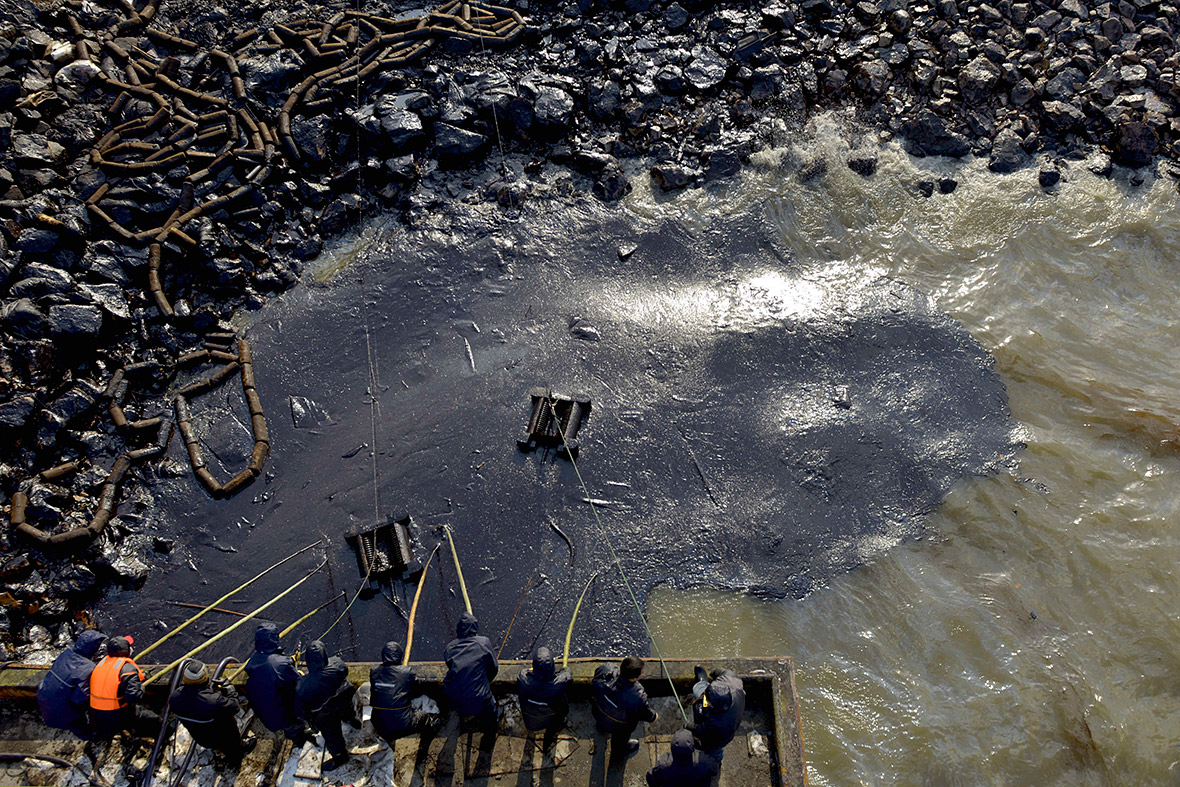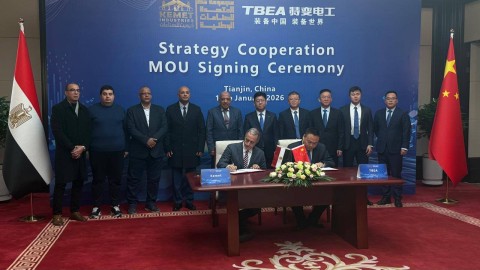A Chinese court allowed a lawsuit by a domestic non-governmental organization against Cnooc Ltd. and ConocoPhillips over the Bohai Bay oil spill in 2011, in what may be one of the first tests for the government’s new environmental-protection laws.
China Biodiversity Conservation and Green Development Foundation are seeking restoration of the bay’s ecology after it was damaged by an oil leak from the Penglai 19-3 field, the Qingdao maritime court in eastern China said on its official microblog Sunday. The court accepted the case on July 21.
Leaders in China have pledged to combat pollution, a byproduct of its rapid economic growth and a leading cause of social unrest. In January, the nation, the world’s biggest carbon emitter, reduced court charges for NGOs that file public-interest litigations in the biggest change to environmental-protection laws in 25 years.
“This can’t be done without support from the government,” said Ge Feng, director of the law and policy department of Beijing-based Friends of Nature. Government support is critical as it helps environmental authorities collect evidence and resist political pressure from local governments, she said.
Cnooc, which owns 51 percent of Penglai, was ordered to shut the field in September 2011 after at least 3,200 barrels of oil and fluids leaked into Bohai Bay in northern China.
Production resumed in February 2013.
China National Offshore Oil Corp., Cnooc’s parent company, and ConocoPhillips, the field’s operator, agreed in 2012 to pay 2.28 billion yuan ($367 million) to resolve claims and pay for environmental cleanup. ConocoPhillips, responsible for the leak, paid 1.09 billion yuan of that as well as 113 million yuan to “support environmental initiatives,” the Houston-based company said.
ConocoPhillips’s communications office in Beijing didn’t immediately respond to an e-mail seeking comment, while Cnooc’s Beijing-based spokeswoman didn’t answer two calls to her office seeking comment.
“The lawsuit, regardless of results, will encourage more NGOs to follow suit and will target state-owned enterprises and big international companies for environment-related lawsuits in China,” said Shi Yan, an analyst at UOB-Kay Hian Ltd. in Shanghai.
Source: Bloomberg












